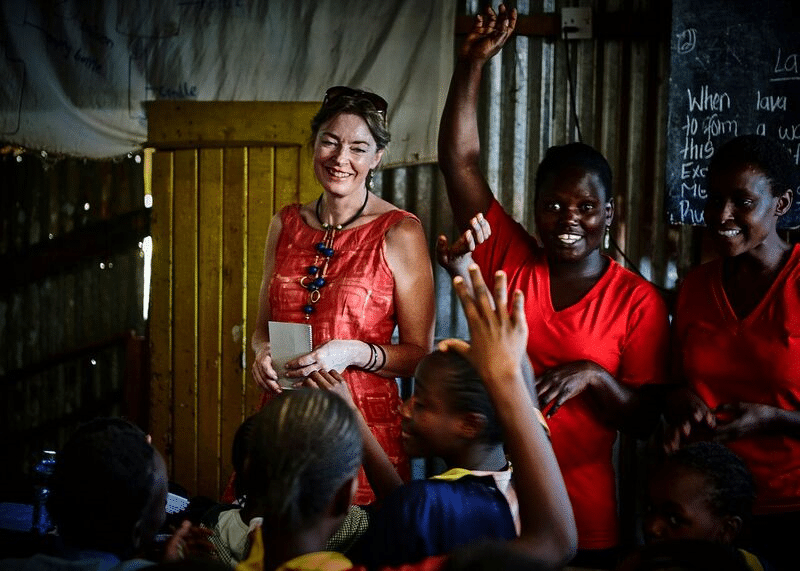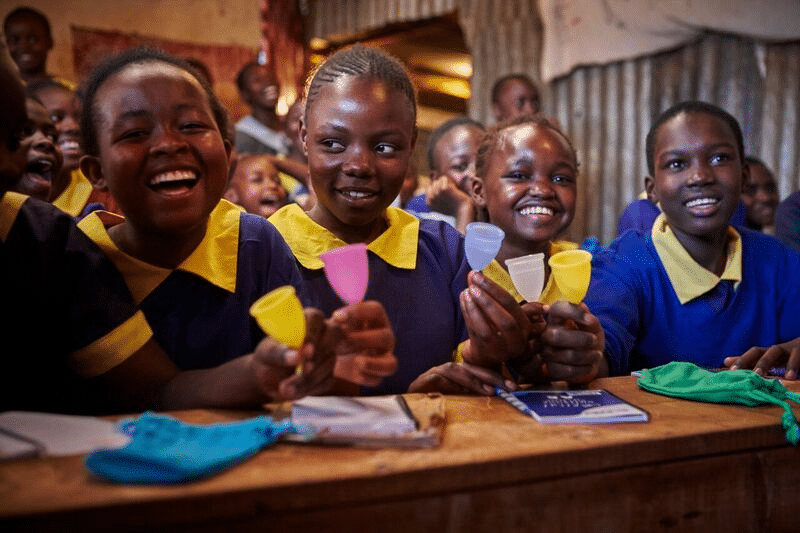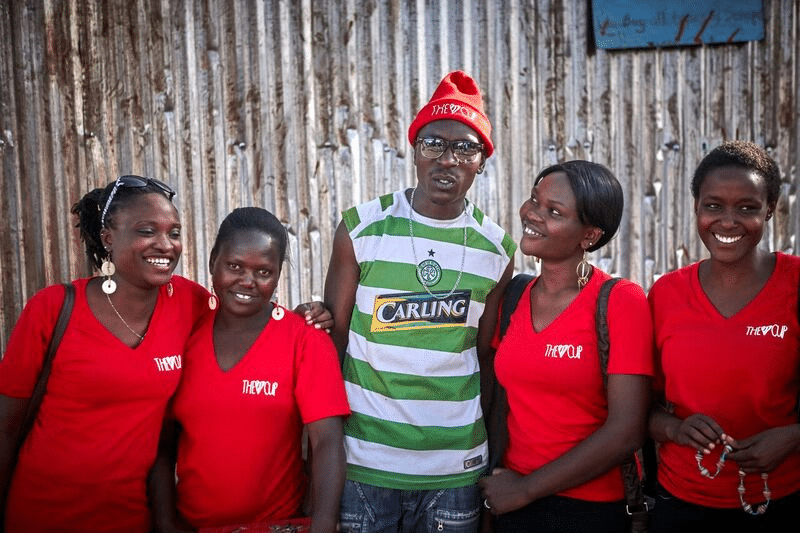What am I doing and why?
The other day a new friend of mine who works at a bank in Sweden asked me what I want in my life; do you want do make money or do good? What is it that drives you? Such straight and direct questions do not happen often. Probably because most people don’t really care about other peoples dreams or lives, as we are so busy with our own. So the questions made me thankful as it showed that someone cares (especially as in this case when it is someone I respect). It also made me stop and ask myself, who am I really? When I was asked if I could contribute and write this blog I was equally honored and put in exactly in the same spot, what am I doing and why? Let ́s see if I am able to trace the reasons behind what occupies me most of the time.

So please let me first start by introducing myself; my name is Camilla Wirseen, I am a Swedish middle-aged women and a social entrepreneur since 10 years. I have lived many years abroad and I am currently spending most of my time in Kenya. Many say they admire my work and wish they could do something similar. My answer to them is that we all contribute by paying taxes, voting, taking care of our children, follow the law and doing the best way we can to avoid hurting others. It is not for all to run around the world trying to save peoples lives.
“Our prime purpose in this life is to help others”
But, and there is a big but, we should care about others and help when and where we can. Dailai Lama once said that Our prime purpose in this life is to help others. And if you can’t help them, at least don’t hurt them. I agree and must admit that when I felt that I had perhaps saved or changed one person’s life I just couldn’t stop. It became an addiction, but a positive one. The idea of returning to a normal job and work in an office feels impossible as long as I know, or feel, I have the possibility to make a difference in somebody ́s life.
The Cup
The projects that I have worked with the last 10 years have by now touched on thousands of people’s lives. The first organization, or rather company, I was involved with was called Peepoople of which I am the co-founder. A brave professor in architecture took on one of the world ́s biggest problems; that 3,5 billion people lack sanitation and invented the Peepoo toilet; a brilliant solution that caught lots of attention worldwide. I worked like a dog, or a horse or whatever you call it when you give it your best at all times, for many years managing the project from start, running around at conferences, doing pilots, finding seed funding and more. But today I focus on adolescent girls in my work with The Cup.

To invent something is a creative process much like giving birth and perhaps this is another answer to what drives me. My baby, or project, that I came up with started in 2012 when I stumbled upon a problem while working in a slum in Kenya. This was an area that hardly anyone spoke about or acknowledged at that time. What I discovered was that a large percentage of girls between the ages of 9 to 18 years old who are living in challenging environments are having sex for sanitary pads, so called transactional sex. This is something that has devastating results for many girls, some which can be life threatening.
The taboo about menstruation
And when digging more into the problem the reasons behind become so obvious. Menstruation is something that women and girls feel ashamed of and speak little about all over the world. Most women I know smuggle the tampon from her bag into her hand when going to the toilet. If this is happening in a rich country where knowledge and money is easily available and gender equality has come far then it is not hard to imagine how this taboo hits young girls in any developing country.
The taboo about menstruation often also stretches into sex in general. It prohibits mothers, fathers, sisters and teachers and other adults to inform teenagers about menstruation, how to avoid pregnancy and even to inform how a woman becomes pregnant, what HIV or STDs are, what abuse is and more. I have met girls who think they are sick every month when they get cramps, others who think that drinking Coca Cola or peeing after sex prevents pregnancy or HIV. The lack of money coupled with the taboo leave girls with no menstrual solutions and many girls miss school or drop out. The situation is dire and desperate.
Finding the problem is the hardest
A world famous innovator in Sweden called Håkan Lantz told me once that finding the problem is the hardest. Once found the solution can be identified. But what I realized was that the girls were not facing one but many problems. So what I had to do was to develop a program that tried to tackle as many of these problems as possible.
For example – the taboo. Well it is not that hard; you simply talk. The Cup educates not only the girls but also the boys, fathers, mothers, teachers and leaders. If the children and this case boys understand and have empathy they will have the possibility to grow up and become better fathers to their daughters and hopefully use a condom to avoid unwanted pregnancy and STD ́s before married.
Create trust
Trust is key in all we do in life. We wouldn’t even hire a plumber unless we believed that he could fix our running toilet. So to make the girls feel comfortable, less shy and able to open up The Cup hires trainers that do exactly that, create trust. The Cup trainers are young women and men who grew up in similar environments and faced similar challenges.

Another problem that the program tries to tackle which has given the name to ourorganization (The Cup) is the menstrual cup. As the girls lack money we donate one menstrual cup to each girl, which can be reused for 10 years. The Cup has reached more than 15 000 adolescent girls in Kenya with a short comprehensive educational program and a cup and more than 8000 boys since 2015. The program also involves identifying girls who have been raped or got infections to ensure they get medical attention or counseling. To be able to support long-term The Cup also has a helpline open 24/7.
So this was the first step; find solutions. Of course, there are so many more problems to solve that keep me busy every day. Finding ways to run the program efficiently, get funding, find partners and people who care, build an organization, creating awareness and more. And I have to admit it has involved taking high risks financially which brings me back to the original questions; no, I don’t work for making money (even if I should consider it more) but with the strong hope that my work has an impact on many girls lives today and in the future.

Camilla Wirseen grew up in Sweden and studied architecture in Rome Italy. She has worked as a photographer, taught at the university in art and architecture and been working as a curator at major cultural institutions in Stockholm before she became a social entreprenur and co-founder of Peepoople. Ever since, Camilla dedicates herself to changing the lives of underprivileged. Today she is managing The Cup of which she is the founder, producing a podcast called Ghetto Stories and has recently launched a new project called Ghetto Gifts where some of the profit goes to helping girls.
Ghetto Stories podcast @ https://www.afripods.command http://www.ghettogifts.co.ke

